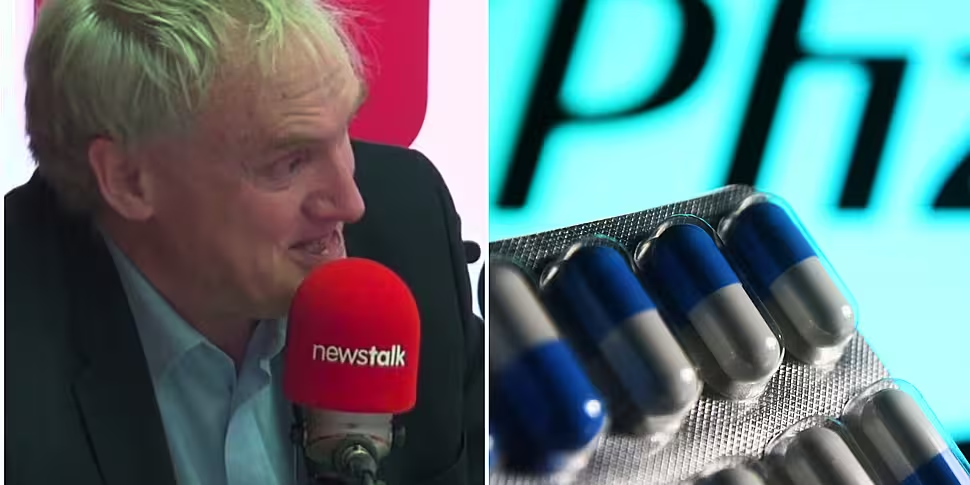The early results from Pfizer's COVID-19 antiviral pill trial are 'remarkable', according to Professor Luke O'Neill.
However, the leading immunologist says such medicines aren't going to replace vaccines, which remain the "safest bet" in protecting people against COVID-19.
Pfizer last week said early trial results showed its new COVID-19 pill reduced the risk of hospitalisation or death by up to 89%.
The company has claimed the drug - named PAXLOVID - showed “overwhelming efficacy” against severe illness.
Professor O'Neill - Professor of Biochemistry at Trinity College - told The Pat Kenny Show it was a "great sign" that Pfizer actually stopped their trial early following these early results.
He said: "That means it’s working during the trial.
"Ethically, they have to stop it - there are people on placebo, and you have to look after them."
He said that and other early indicators are "very good news" and give confidence that the drug's actually working - although he cautioned we haven't seen the full data yet.
Professor O'Neill said there's plenty of advantages to having such pills available to treat the virus.
He said: “They’re easy to make - these are like aspirin in a way, and much easier than a vaccine to make. It should be easy enough to ramp up production rapidly.
“They know the world needs this antiviral pill, so they’re going to ramp up production massively.”
Pfizer still needs regulatory approval in the US and EU before they can roll out PAXLOVID to patients.
"The vaccine is the safest bet"
Professor O'Neill explained that the pill is taken after COVID-19 symptoms developing, with the 89% reduction in hospitalisation seen when the table was taken within three days of symptoms starting.
The efficacy was "slightly less" if taken five days after symptoms developed, but still significant.
While this all means healthcare systems could soon have another highly effective tool against COVID-19, Professor O'Neill said vaccines are "still the thing to go for".
He said: "Prevention is always better than cure. We’re not going to be saying replace the vaccines with this.
“As we now know, if you’re vaccinated there is a risk of infection. If you’re vaccinated and test positive… take the antiviral. It’s like a belt and braces job. The fear of that breakthrough [infections] happening is lessened by this.
“[Pfizer's] data was remarkable - it did kill the virus in people. But we must keep saying the vaccine is the safest bet."
Professor O'Neill said we will need to wait until the pill is out "in the real world" to get a full idea of how well PAXLOVID works, similar to the fresh data we received as vaccines were rolled out to millions and millions of people globally.
He also said there's already talk of Merck and Pfizer getting together so their respective antiviral pills are given together - similar to how HIV drugs are given in a 'cocktail'.
The Trinity professor said that would be a "very sensible" move, as it would help decrease the risk of resistance developing.









